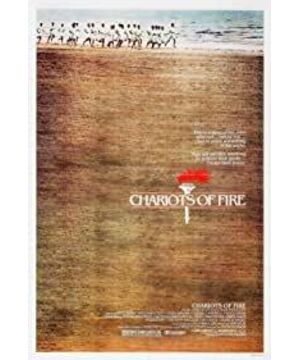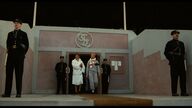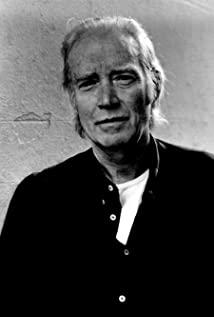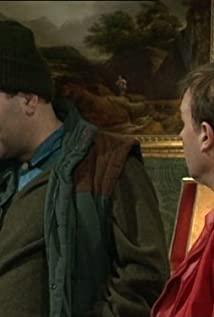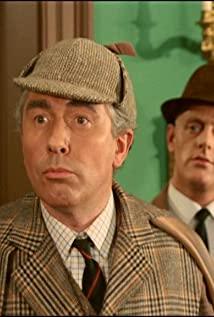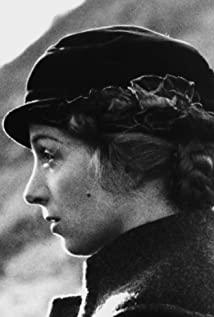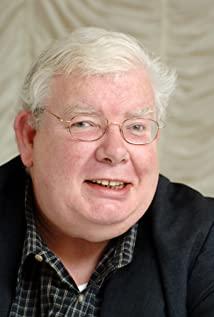"Either win the crown or die."
Although the original concept of the Olympic Games is inherited from the spirit of ancient Greece, today's Olympic Games and ancient Greece have many differences in the concept of competition. The ancient Greeks regarded the competition as a life-and-death battle for honor. The words carved on the two stone tablets in the ancient Olympic sites can tell one or two: "Either win the crown or die." Just as the ancient Greek warriors said. The yearning for victory and honor is either to return victorious or die in battle. There is no runner-up and third runner-up in the competition, and there is only one champion, and everyone else has to drink the bitterness of failure alone. The only victors are even more glorious than triumphant warriors-they will be regarded as gods, warriors favored by Zeus, wearing a crown of wild olives, parading among the cheers of the crowd, enjoying the people Sacrifice and feast. When even the most serious historian Thucydides writes about this victory, he will put aside his rigorous narrative style and write the praise he deserves for this hero.
The ancient Greeks enjoyed the joy of sports. Even if the Egyptian priests said inexplicably, "You Greeks are all children", they still desperately seek out the joys of life that have yet to be discovered. At that time, no one thought about profiting from the game, because this kind of sport has been the exclusive activity of the nobles since ancient times, and they spent energy and money to get the little flower crown. This kind of spiritual victory is definitely not comparable to priceless treasures such as gold and diamonds. Speaking of the degree to which the Greeks attached importance to the Games, their historians even dated the Olympia Games (the Games are held every four years). When Apolodoro mentioned Thales' birth date in the "Chronicles", he used "the first year of the 35th Olympia".
In today's games, you can still see the flash of the Greek spirit. The Olympic flame has been passed since 1936, and it was taken from the ancient Olympic temple in Olympia, Athens. This kind of fire is derived from the star fire that Prometheus stole from the sun cart in Greek mythology. Prometheus also angered Zeus. He was nailed to the Caucasus mountains to endure suffering. Pecking off the internal organs. What he brings to mankind is not only the fire that ignites the night sky, but also the spiritual treasure, the dawn in the wild, "brave, strong, fraternity, and selfless" is the place where Prometheus is praised by people. Therefore, the Olympic Games also contains a commendable spirit of dedication.
As the founder of the modern Olympic Games, French educator Coubertin has always believed that "sports is a way for youth to educate themselves." He gave more meaning to sports: In addition to victory, sports is a god-given joy, the driving force of life, so that people can get the fairness that people have sought in life for a long time, give courage to the cowardly, and inform people that honor needs to be just and unselfish. Means to fight for. Sports are "fertile ground for cultivating mankind" and the driving force for mankind's rapid progress.
In the original Olympics, all non-professional athletes participated. It can be seen that this is a manifestation of Coubertin’s attempt to revive the Greek spirit-in Greece, everyone has to do a lot of work, not just one skill, just like the famous playwright Sophocles, not only great The poet was a general, a diplomat, a clergyman, and even an inventor. Only by having outstanding performance in more aspects can it be respected by the people.
At the time, professional athletes were all private professions. They would try to conceal their identities, and we can still see the traces left by them to this day. Rugby players wear heavy protective gear and thick clothes, not to avoid impact damage as they do now, but to cover their face and body. Because most rugby players are college students, reputation is very important to them, and they will be expelled from college if they are not careful.
From ancient Greece to the early days of the Olympic Games, the Olympia Games have a lofty and idealistic concept. Perhaps this is the reason why it cannot be maintained for a long time. However, the spirit of devoting to sports and fighting for victory is a moving ode no matter when.
[Abraham is versatile]
*-Chariot of Fire-*
"Please give me a bow
for making gold by fire! Give me the arrow of desire!
Give me the spear! Cloud, please don’t cover it!
Give me the chariot of fire!
I won’t stop the war of thoughts,
nor will my sword I won’t fall asleep on my hands
until we
established Jerusalem on the green grass of England ."-William Blake, "Jerusalem"
Colin Weilandt was shocked by the "Jerusalem" poem, for his script Named "Chariots of Fire" (Chariots of Fire). William Blake is known for writing religious poems. The term "Chariot of Fire" comes from the "Ascension of Elijah" in the Bible. This famous Israeli prophet can resurrect a private person, make fire fall from the sky, and separate the river by hitting it with his cloak. One day, when he and Elisha were walking on the road, “a fire and horse suddenly separated the two, and Elijah went to heaven in a whirlwind” (2 Kings 2:11). The miracle of "Chariot of Fire" represents Elijah's persistence in his faith and his ultimate sublimation. The scorching flame and power are the light of faith.
Belief here is not necessarily a religious belief. It can be anything. It allows you to find peace, so that you will not betray everything because of your current experience and stay in the world that you once deeply cursed. The Russian writer Mamin Sibiliak once said: "Everyone can't help but be obsessed, and everyone can't help making some mistakes. But when things are lost and everything around them starts to falter, faith can save a person." .
"Chariot of Fire" is about the passion brought about by faith, honor and sports.
In 1919, Britain won the first World War that had just ended. People slowly walked out of the shadow of the war and started a new life positively with the hope for a better life. The young people who had returned from the battlefield walked into the campus again to start learning.
Harold Abraham is an ambitious man. As the family fled from Lithuania to England, they were admitted to Cambridge. His Jewish identity made him suffer from discrimination in the UK, and he was often in helplessness and anger. In the eyes of the British, the Jews are a bit stinky, brave and arrogant, and they should go back to their kingdom of Israel. The pressure from the environment made Abraham's defensive heart extremely strong, his speech sharp, and often speechless (so he could be admitted to law school). In many cases, he cannot be blamed for appearing to be more competitive than others. He has to work harder than ordinary people to be respected. For what he wanted, Abraham never learned the English gentleman's etiquette. He always made no secret of his affection, and was bound to be aggressive. He also won countless games and the heart of his sweetheart.
Abraham had the ancient Greeks’ perseverance in winning games. “The game is for victory. If you don’t win, you won’t participate at all.” Versatile, trained with a good voice, and performed well in the choir. In addition, he is very kind, helpful, and is loved by his friends. He puts running at the top of his life and even ignores the eyes of his lovers. Because for him, only by gaining victory and recognition can he live worthy, which is the foundation of his survival. Otherwise, he could be a doctor like his brother, earning money and decent. If he wants more, he has to pay more.
For Andrew Lindsay, as a nobleman, he doesn't need to prove anything. The game is just a game for him, and he enjoys it. But for Abraham, this is a struggle with the world, a matter of life and death. As the poem says, he will not stop fighting, nor will he rest for a while, until he has established his own spiritual kingdom.
*Film Music.
The music with the same name as the film is far more famous than the film, and you can see its tribute to it in many film and television works. Those electronic music that is like a heartbeat excites people unexpectedly, and the after rhyme of the notes creates a profound mood, as if singing those fateful steps that can run lightly under your feet. However, such shocking music did not appear on the competition field as many people imagined, only in the same scenes at the beginning and the end of the movie-a group of young people in white sportswear running on the beach, splashing under their feet The mud spots made my whole body covered. The lens gave everyone a close-up, without exception, they all looked happy and enjoyed the joy of exercise.
The ancient Greek poet Pindar is famous for praising the victory at the Games. But he never pays attention to the stadium, unlike ordinary people who praise sports, he does not describe the audience's breathlessness, and he does not describe the nervous state of the athletes. He praised the victors but never talked about their achievements or the details of their victory. He regarded the victor as a representative of human thought. Pindar praises those who "inherit and carry forward the great traditions of the past. It is through these traditions that the world has hope."
In the competition arena, the director did not abuse music sensationalism like many sports inspirational movies, but try to remove them. The interference of music, with a few simple notes at most, allows people to experience the suffocating tension of athletes when they run, and the tranquil world when they are engrossed. It took a long time to run past the finish line before they heard the cheers from the audience again, regained their breath and mind, and looked back at this short runway like a dream. The movie amplifies the roar of the athletes after winning in the noisy background sound, which is more shocking than any music.
The power, tradition, and beliefs represented by the chariot of fire are not only in the cheers of the spectators on the sports field, as most people think, but in their usual training efforts. When they are in trouble for their ideals, It is that they are totally intoxicated in the joy of sports.
[They are intoxicated in the joy of sports]
*-The light of faith-*
"I believe that God created me with a purpose, and I feel his joy when I run."
The other male protagonist of the film, Eric Lindel, is a devout Christian and a pure Scot. He is a kind-hearted missionary, a beloved rugby player, and an idol in the minds of children. He is kind and helpful, and is a good teacher and helpful friend. At the same time, he also has excellent speaking ability and charisma. People will brave the rain to listen to his preaching.
Lindel really loves the joy of running. As a runner, his running posture is not standard at all, and even a little bit "treading his teeth and dancing his claws", but it is this primitive and wild running posture that makes him fly as fast as the wind. In an amateur match against the Frenchman, although he fell, he still turned defeat into victory. Father hoped that through this victory he would attract people's attention and make more people believe in Christianity. But Lindel did not agree with this way of preaching, which deviated from his original intention of preaching. Enabling others to believe in Christianity is not like blind worship of star idols. People have to really know what they believe in and whether they understand the morals.
When people are struggling to find a job, busy with their daily livelihoods, and are confounded by practical problems, how can we tell them the importance of faith? Lindel compared belief with competition, "They are both difficult and require concentration of will and soul." The joy of victory in the game and the joy of some achievements in life are short-lived. How to make it lasting? Where to find the power to sprint forward desperately? For Lindel, faith is his strength and the reason for moving forward. So when his beliefs conflict with the game, it is not difficult to understand why he gave up the game and insisted on his beliefs. When it comes to faith, in fact, people always have a lot in common. Lindel is like the ancient Greeks who longed for victory (running to become the legendary warrior of Zeus), Lindel ran to glorify God. They are all moving towards their faith.
For those who win the victory, it is not faith that makes them different, but because they have the ability to change the world, but they need spiritual motivation to urge them to move forward.
Both the early Olympia spirit and this movie have a strong imprint of idealism, but it is precisely these beautiful ideals that can only be written into the novel that really exist in the troubled times, and they have really won the final victory. The difference between these idealists and others is that they are willing to work hard for their ideals. Victory is not a gift from God, it is won through unremitting efforts day after day.
Please indicate the author: Nine-Tailed Black Cat
http://www.mtime.com/my/LadyInSatin/blog/734721/
View more about Chariots of Fire reviews


